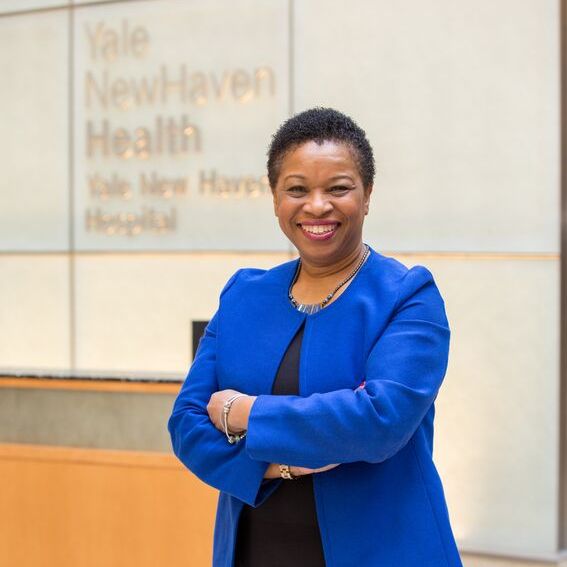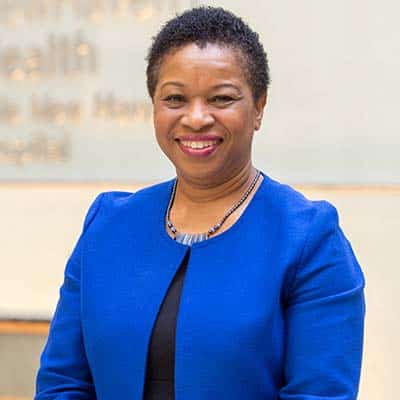
To build healthier communities, there is nothing more powerful than lived experience.
Take a moment to think about your experiences. How has your path shaped you? How have your experiences – in your family, in your school, in your community – given you a unique perspective on what people need to live their healthiest, most fulfilling lives?
Today, I am the first Black Chief Nursing Officer at Yale New Haven Healthcare, but long before that, I was the second child and eldest daughter of eleven children growing up in Jamaica. I was a nursing student, and a registered nurse and nurse leader on a small island. I was an immigrant to the United States, a young mother, a busy operating room nurse, and the wife of a minister. Each of my experiences shaped me into the person, the nurse and the leader I am today.
These experiences have also given me unique insight into our healthcare systems, and the fact that many still struggle to ensure equity for all patients. My experiences have affirmed for me time and again that when nurses and clinicians are members of the populations they serve, they can better communicate, engender trust, and advocate for minoritized communities.
I’ll give you an example. Just over a year ago, I accompanied my husband, a recent kidney transplant recipient, to a postoperative appointment where a physician told us that his creatine was higher than normal, but normal for him—a Black man. When I asked other transplant surgeons, they said, “That’s how it is. It’s been that way forever.” However, after some further investigation, it was determined that this was an outdated practice that needed to change.
I’m glad to say since then, our system has eliminated the different standard, but had I not asked, we never would have known. It would have remained the standard, with potential for increasing risk to black men, already at a higher risk for kidney disease.
It’s this experience and many others that underscore how powerful representation is for patients, and why we need more nurses of color in every level of healthcare.

One strategy that we are engaged in at our hospital, is partnering with a university to expose high school juniors and seniors from minority backgrounds to nursing and healthcare. They spend a week at the university campus, learning about college life and preparing for entry. The students are exposed to multiple healthcare situations and simulations with nurses as their coaches. They then spend a week in the hospital shadowing nurses, learning about their roles in multiple hospital settings. Because of this program several students have transitioned into college and are on their way to becoming nurses of the future.
I may be biased, but I believe nursing is still one of the most rewarding careers. As a nurse, you can impact individuals throughout



















